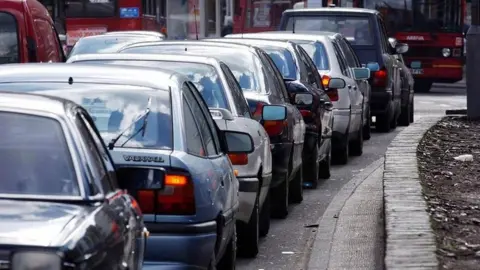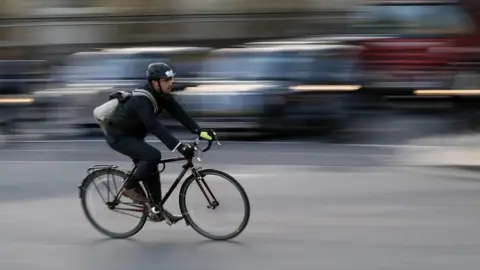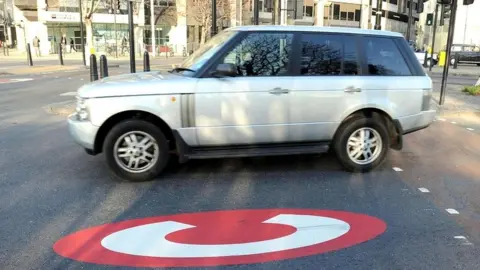Carrots and sticks suggested to overhaul London roads
 PA
PAIf there is a direction of travel in city planning then this report by Centre for London emphasises it.
The thinktank, which comes up with potential solutions for challenges in the city, has looked into "the Future of London's Roads and Streets" in the capital.
Broadly it is against polluting vehicles in cities and for walking, cycling and public transport.
The question is how do you incentivise people to give up their vehicles - especially in outer London where it is still the most dominant transport mode?
The Centre for London also wants the mayor to introduce a set of rules for behaviour.
It would be called a "movement code".
It would mean, for example, motorists taking more care pulling out, cyclists being more considerate when overtaking slower cyclists, and pedestrians paying attention stepping into the road.
That may be wishful thinking.
 Reuters
ReutersThere are also carrots in the report to get people out of their vehicles - incentives like recommendations for Oyster and contactless to be incorporated in car clubs and cycle hire.
And a cash back scheme for cars that will have to be scrapped due to ultra low emission zone - to be introduced in 2019.
But there are also sticks. The report wants to reduce residential parking spaces and reduce the residential discount for the congestion charge.
It wants ride hailing services properly managed including minicabs having to pay for the congestion charge.
Also road-pricing again appears - where motorists would have to pay per mile. The mayor has mentioned this in his transport strategy but is there the political will to deliver it?
 PA
PAThere are also more calls for money to be invested in public realm to make areas more "liveable".
That will mean encouraging cycling with more segregated lanes and making areas more attractive by restricting access to vehicles.
But it will not be universally welcomed. There is finite road space in London and many who drive on it don't like their access being reduced.
The political question is who should be listened to?
At the moment it seems the mayor is listening to pedestrians and cyclists and in cities across Europe vehicles are being squeezed out.
